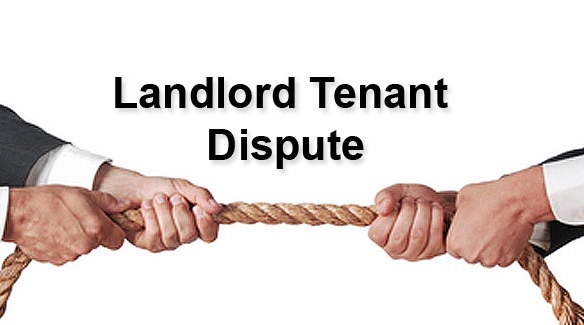Prepare early for EPC Regulations changes
From April 2018, new laws will make it an offence to let out properties with the worst energy efficiency ratings. The new legislation, brought about by the Department for Energy & Climate Change seeks to ensure that all tenants have the right to live in an energy efficient home. It will also target the reduction of CO2 emissions for all buildings to around zero by 2050.
New minimum energy efficiency standards for England and Wales (MEES), passed in 2015, applies to both domestic and non-domestic sides of the Private Rental Sector (PRS); meaning that letting out a commercial property or a house to a tenant with an Energy Performance Certificate (EPC) rating of below E (so F & G), will be unlawful. Commercial property is being based on CO2 emissions whereas the domestic rating is based on fuel costs.
These regulations will make it unlawful for you to grant a new lease if your property has an F or G EPC rating, with the rules phased in over the next five years. Phase 1, which commences on 1st April 2018, will mean any property subject to a new tenancy (either to a new tenant or an existing tenant) will need to comply with the minimum E rating. By April 2020, Phase 2 will have kicked in, which means the regulations will then apply to all privately rented homes that require an EPC.
If a property does not meet the minimum standard, then it cannot be let or even marketed, unless it has been granted an exemption. You could face financial penalties of £5,000 for non-compliance.
With the threat of this new legislation just over a year away, nearly 17%* of all homes currently let out may suddenly find they can no longer legally be rented; unless the property is registered as an exemption (more about this later). This data is backed up by an English Housing Survey report, which claims 1.8 million dwellings had a rating of F or G back in 2011.** The key findings of this report also indicated that the vast majority of these homes were in the PRS, that almost half were built before 1919 and that improving the energy efficiency of them would not always be straightforward or inexpensive. The cost of getting so many failing properties up to an acceptable standard in such a short space of time is likely to be astronomical.
What properties do not require an EPC?
Most residential properties will require an EPC. The exemptions are:
- Listed buildings – (seek advice from your local authority if any work would alter the building’s character)
- Churches and other places of worship
- Holiday accommodation (rented out for less than 4 months a year)
- Temporary buildings (used for less than two years)
- Buildings that are due to be demolished
- Standalone buildings with a floor area of less than 50 metres square that aren’t used to provide living accommodation for a single household
- Industrial sites, workshops and non-residential agricultural buildings that don’t use a lot of energy
- Residential buildings (intended to be used less than 4 months a year)
The importance of planning early
Demand for loft insulation services and other improvements are likely to increase as we get closer to the deadline. Thinking ahead and enlisting the services of local tradesmen now, could save you lengthy void periods later on; especially if rental properties start to become categorised as unlawful.
To avoid a potential bottleneck, we suggest you shop around now to see what resources and help are available to help with upgrading properties to suitable EPC levels. It may also be worth talking to your tenants to see if they are eligible for any Energy Company Obligation scheme or renovation grants that will help improve their living conditions.
What will the cost be?
Getting to grips with this new legislation early on is essential if you are to comply effectively. For instance, contrary to popular belief, you will not be expected to improve your property if it means incurring upfront costs. This is because savings resulting from the work carried out should end up repaying their costs over the expected lifetime of the works. In certain circumstances, where this is not possible, you may be entitled to apply for an exemption on your property.
What is an exemption and can I apply?
The same cost-effective measures approved under the Government’s now defunct Green Deal will apply to the new regulations when they come into force on April 1st 2018; protecting landlords from having to face upfront or net costs for improvement works. This means you may still be eligible for an exemption from reaching the minimum energy efficient standard if you can provide evidence of the following:
- Steps were taken to try to make the property more cost-effective but it still remains below an EPC rating of E
- You are unable to carry out improvements without upfront costs because you or your tenant fail the relevant credit checks required to obtain private funding from Green Deal providers
- A third party’s consent or permission is required to undertake the improvements relating to the minimum standard but consent is denied or was provided with unworkable conditions
- The occupying tenant withholds consent to the work being carried out
- When a suitably qualified independent surveyor (Royal Institution of Chartered Surveyors or similar) expects the measures to devalue the property by more than 5% if the work goes ahead
- Where wall insulation is required but you have obtained a written opinion, from a suitably qualified person, advising that this will cause a negative impact on the structure of the property (or the building of which it forms part of)
Registration of exemptions
It is anticipated that the PRS Exemptions Register, which will be open to public inspection, will commence from 1st October 2017. Any exemption to the legislation must be registered, otherwise the property will be considered non-compliant. Supporting evidence of any applied exemption will be required and landlords could be in breach of regulations if they claim an exemption to which they are not entitled. It is understood that exemptions will be valid for five years, after which they will need to be reviewed to see if they are still upheld.
What resources and help are available to landlords?
There has been a lot of confusion around what green energy deals are available to landlords to finance these energy-saving improvement costs. Although the Government has stopped funding the Green Deal Finance Company, which was set up to lend money to Green Deal providers, you may still be able to get Green Deal funding from those providers who are now financing the scheme themselves.
In January, Greenstone Finance and Aurium Capital Markets announced its acquisition of the business and assets of the Green Deal Finance Company. The new ownership will continue to service the existing Green Deal loans and is due to commence financing of new
Green Deal loans in Q1 of this year.
Green Deal loans can help with the cost of a boiler or other essential measures for landlords who cannot otherwise afford upfront fees. They typically offer competitive interest rates but are more easily managed as they are paid by the bill payer (in this case the tenant) who benefits most from the arrangement.
Simple exercises such as changing lightbulbs to LEDs can be highly effective when it comes to improving an EPC rating and tenants will also appreciate the saving on their energy bills. However, the most effective energy-saving improvements you can make to a property could include any or all of the following:-
- Insulation (solid wall, cavity wall or loft)
- Double glazing
- Heating
- Draught-proofing
- Renewable energy (solar panels or heat pumps)
It is worth noting that so long as the minimum E rating is achieved, it is up to you to decide which work needs to be carried out.
When replacing a boiler, we strongly advise going to the extra expense of fitting an A-rated one that comes with a 10-year warranty. The reason for this is that the Government’s long term goal is to raise standards even further, so the minimum EPC rating is likely to rise to a D by 2025 and a C by 2030. Putting in the extra effort now, exceeding the required standard could mean you will save money in the long term, by not having to do further improvements.
If your property is in breach of the regulations, although you may be liable, it will not affect the validity of the tenancy itself, so the rent still continues to be payable to you.
How improved EPC ratings will benefit landlords
Any improvement to a property, in terms of energy efficiency or otherwise, will always have a positive impact on its rental appeal. Clued up tenants looking to check out the best properties on the market are increasingly likely to do a postcode check on every property they search; reviewing the EPC energy ratings as standard. After all, who doesn’t want to live in the warmest, most comfortable and energy-efficient home?
If only half of the 17%* of privately rented properties previously mentioned are removed from the rental market, even temporarily, this could have a significant impact on the industry. By planning ahead now, you could be saving yourself untold worry and financial concern.
*according to data released by Urban.co.uk
** English Housing Survey report 2011







